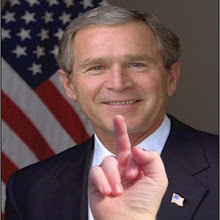There's a (slightly tongue-in-cheek) theory called nominative determinacy that suggests at least some people's names are connected with their jobs: so Mr Baker may own a cake shop, Mr Pope studies biblical writings, Mr Payne is a dentist and so on. Historically, things were the other way around because until comparatively recent times, people didn't have surnames at all: largely because we just didn't need them in the tiny, disparate settlements that we inhabited. Even if two people in the same village shared the same Christian name, say, "Joe" they could be easily identified by their occupation (even the village idiot).
Many of these survive today - a Cooper for example, made barrels; a Smith would have worked in a forge; a Baker would be the village's, er, baker, etc.
But what of Christian names? It's a popular myth that native Americans name their children after the first thing the mother saw after giving birth - flying bird, hunting bear, two dogs shagging... but a more cogent explanation is that the tribal elder is actually the one to determine name. He will see a name in a vision or dream or perhaps from some specific feature special to the person or family.
So can your Christian name influence how you're likely to behave in future?
Researchers David E. Kalist and Daniel Y. Lee of Shippensburg University in Pennsylvania think they have found a link, reported here. According to the limited report, boys with unpopular names such as Ernest and Ivan are more likely to engage in crime than are children with David or Michael.
On the surface this appears to be statistical confusion where the correlation (the match) is confused with the causation (the cause of the observed effect). Such confusion crops up all the time in statistics and it's often difficult to assess. This sort of statistical cluster is often cited to "prove" that power lines and mobile phone masts cause cancer; particularly in tabloid newspapers.
A deeper look at the results suggests that there may well be some causative link although it's as much to do with social class as it is with the name per se. Nontheless the authors also suggest that children with unusual names find it difficult to become accepted among their peers.
The knee-jerk reaction to this study is predictable: early comments on the story call it BS and demand to know what the statistical relevance and margins of error are. Yet in reality, we can see that there's a definite connection - analysing the figures just confirms what we already suspect.
Many names are common to social and ethnic groups. You won't meet many white boys called Leroy or Mohammed for instance; and girls with names such as Eugene or Beatrice are not likely to be standing on street corners plying their trade.
Crime - particularly juvenile delinquency - tends to run in certain social groups; and while it's not exclusive to them, it's certainly more prevalent there. Certain groups of Christian names are also common in specific societal groups - this is natural because, on the whole parents, even poor ones, want their children to fit in.
Therefore we have a direct link - the correlation. It's not the name - but the social group that uses that name.
Henceforth, I'm going to call myself Charles Nigel Draco in the hope that I can enter a better social class. Or not.
Exile
6 years ago




No comments:
Post a Comment